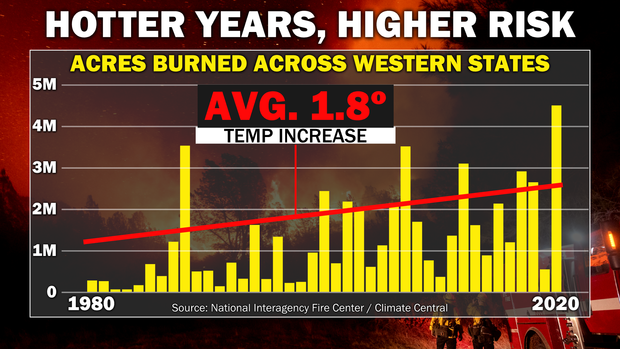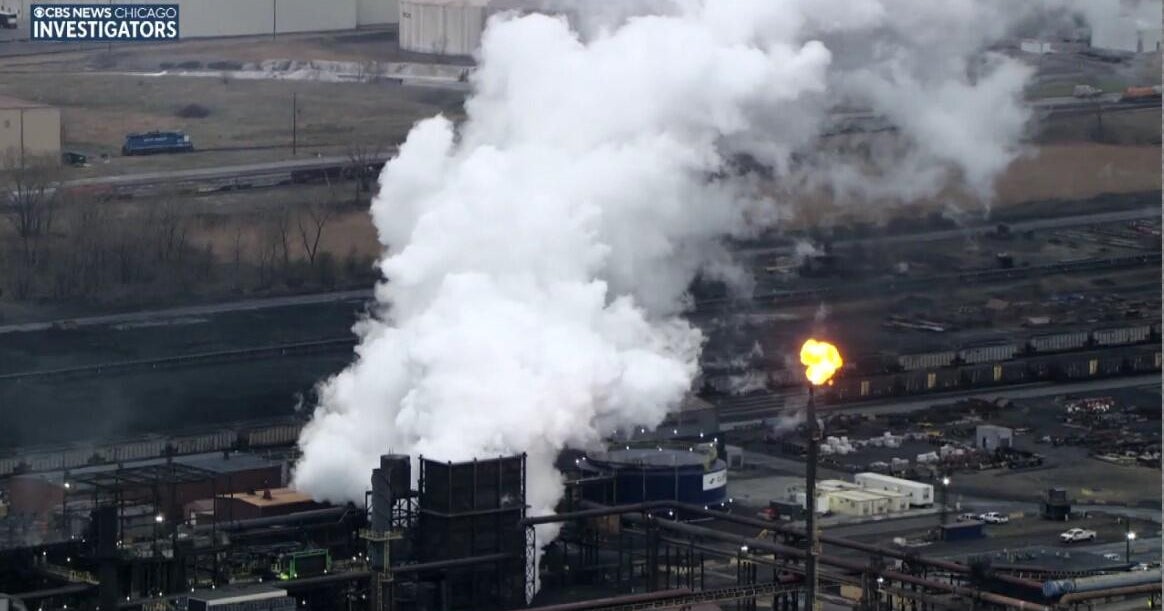The air got cleaner in 2020, thanks to the pandemic
The global pandemic has changed the way people live and work: fewer miles on the road commuting and in the air traveling, and a reduction in industry. The result? Cleaner air, with less haze and heat-trapping greenhouse gases, according to one report.
The U.S. is on track to reduce greenhouse gas emissions from burning fossil fuels by more than 9% in 2020 compared with last year, according to research firm BloombergNEF. The last time yearly emissions were this low was 1983, nearly four decades ago.
While the reductions were driven by a combination of decreases in various sectors, including power and industry, the largest drop was transportation, which declined 14% from 2019.
Reductions like this — if sustained — help fight climate change by trapping less heat in the atmosphere. More heat trapped leads to higher global temperatures.
But the report also contains bad news: Emissions from the historic wildfire season in the western U.S., which is partially driven by climate change, have been four times higher than the yearly average.
That jump in wildfire activity will offset the U.S. economy-wide emissions drop by about 3%. But the U.S. should still post a 6.5% total decrease in emissions this year, according to the BloombergNEF report.
That is almost the amount that experts say society needs to reduce emissions on a global scale for each of the next 10 years to keep the worldwide increase in temperature to less than 3 degrees Fahrenheit and avoid the worst impacts of climate change.
Because the pandemic's effects will linger into 2021, the report predicts U.S. emissions will be down 5% next year compared with 2019 levels.
But a drop in emissions for a couple of years is merely a drop in the bucket. That's because greenhouse gases accumulate in the atmosphere and it is the cumulative emissions that determine how hot the planet gets and how bad the impacts of climate change become.
Although China currently contributes the most emissions, according to the report, the U.S. is responsible for almost twice the cumulative emissions of any other nation since the start of the Industrial Revolution.
The short term economic disruption caused by COVID-19 has inadvertently put the U.S. back on track to meet its commitments in the Paris Agreement, which President Donald Trump announced in 2017 he would pull the country from.
The U.S. is the only nation to drop out, but President-elect Joe Biden has said he will take action Day One to rejoin the pact.
Once COVID-19 restrictions lift, the return of people to work and cars on the roads will make maintaining the 2020 emissions reductions needed to keep global warming below international goals.
If the nation does rejoin the Paris Agreement, the BloombergNEF report says the U.S. will need stronger policy commitments outside of the power sector in order to hit its 2025 target. In other words, the U.S. will need to drastically reduce its dependence on fossil fuels to reach international goals.
The international community is getting an assist from renewable energy because it is now the cheapest form of energy on the planet, according to the International Energy Agency's 2020 Outlook, but experts say governments will need to implement robust policies to guide markets.




